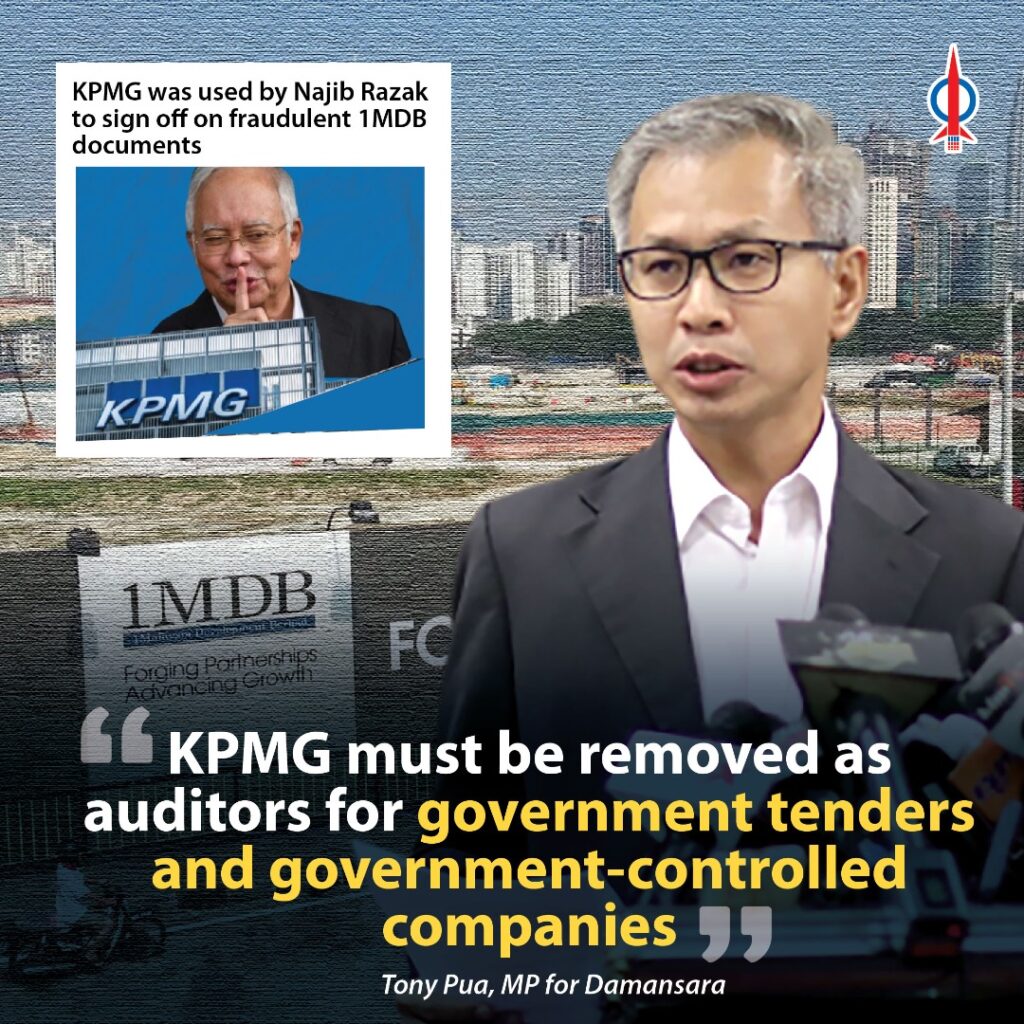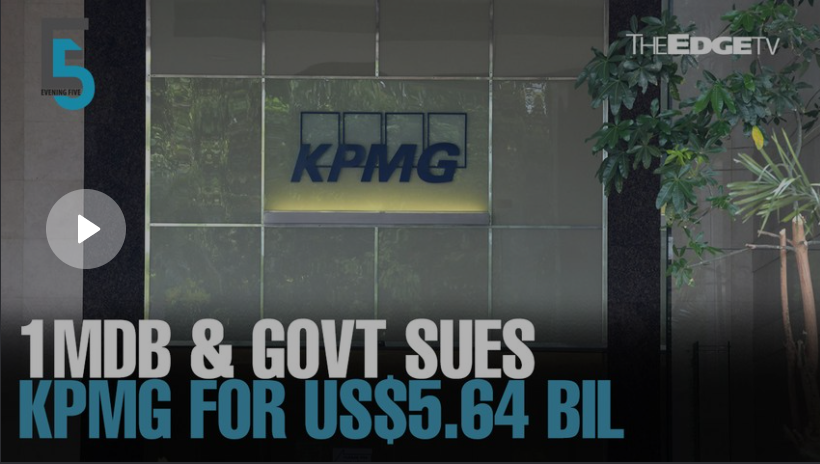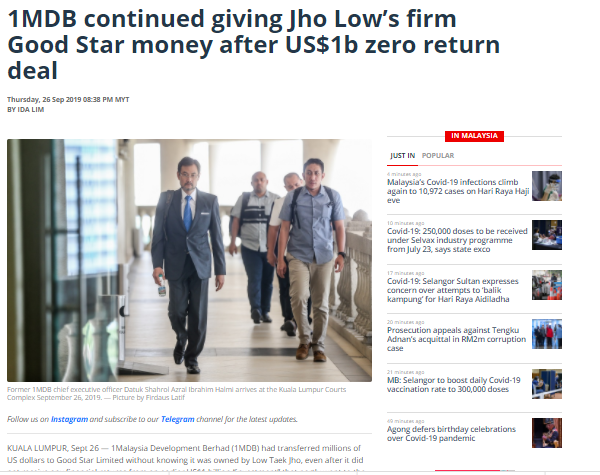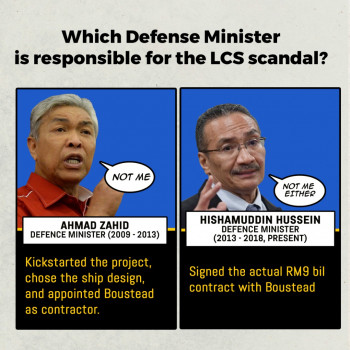19th July 2021

Last week, the media had reported that the Ministry of Finance (MoF) confirmed a writ and statement of claim has been filed against 44 individual partners of KPMG PLT. The plaintiffs of the lawsuit filed dated 6 July 2021 are the government of Malaysia, the Minister of Finance Inc, 1Malaysia Development Bhd (1MDB) and four other subsidiaries of 1MDB.
The suit sought a US$5.64billion (RM23.63 billion) in compensation and damages for breaches of contract and negligence in the audit and certification of 1MDB’s financial statements for the financial years ended March 31, 2010, 2011 and 2012.

I’d like to express my fullest support for the Government’s suit against KPMG for its role in the 1MDB scandal. In fact, I have asked many times over the past few months as to when the Government will file the suit.
The Government had been attempting to arrive at a settlement with KPMG for the longest time and it was clear that the auditors with the global “Top 4” branding was unwilling to meet the demands of the Government.
This was unlike Deloitte Malaysia, who has directly or indirectly accepted culpability in their role as the auditors for 1MDB for the financial years ended March 31, 2013, 2014 and 2015. They agreed to pay US$80 million in compensation to the Government.

In KPMG’s case, the auditor has failed to take into consideration the material disclosures of the transactions which took place in 1MDB’s then US$1 billion investment to form an aborted joint venture with Petrosaudi International Limited (PSI) in 2009-2010, including at least US$700 million that was siphoned to Jho Low’s company, Good Star Limited.
KPMG had performed the arguably record-breaking feat of signing off the March 2010 financial audit within 3 weeks after being appointed in September 2010, after the original auditors Ernst & Young (EY) were sacked for refusing to sign-off the accounts.
The auditors were satisfied that the US$1 billion investment which was converted into a murabaha-loan was sufficiently-backed by a corporate guarantee from PSI. This was despite PSI had only US$150,000 in paid up capital. Worse, KPMG did not require PSI to provide any financial statement or records to demonstrate that it was able to fulfil its guarantee, in the event of default.
KPMG’s failure and negligence has resulted in 1MDB further lending another US$800 million to PSI’s subsidiary in 2011. The United States Department of Justice (US DOJ) has shown that the overwhelming bulk of these additional funds have also been misappropriated by Jho Low and his associates. 1MDB had lost all of the US$1.8 billion which was lent to PSI’s subsidiary.

KPMG had in effect, colluded with the Najib administration by allowing itself to be used by kleptocrats to cover up their misfeasance.
Since KPMG has refused to settle the matter with the Government, and the Government has finally taken an official stand to sue the auditors in court for compensation and damages, the next step the Ministry of Finance must take is for it to remove KPMG as the auditor for any company where the Government has direct shareholder control. In addition, KPMG Malaysia must be excluded from participating in Government tenders until the above matter have been resolved in the Courts.
The failure for an auditor to exercise professionalism in their duties to protect Malaysian tax-payers is an extremely serious matter. An example must be set to ensure no other auditor of the Government entities will ever behave in the same way which contributed to making Malaysia the world’s largest kleptocracy because of the RM50 billion 1MDB scandal.
Tony Pua
MP for Damansara



